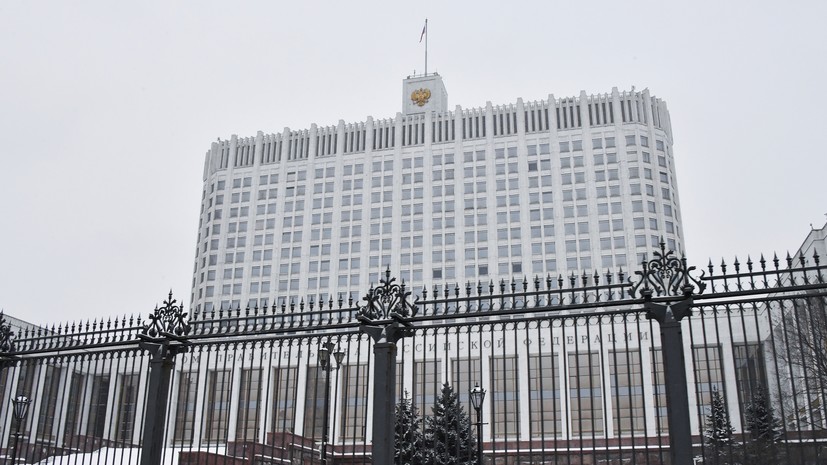The Russian government proposes to extend the presidential decree on the mandatory sale of foreign currency earnings by exporters to strengthen the ruble exchange rate.
First Deputy Chairman of the Cabinet of Ministers Andrei Belousov announced this on Tuesday, January 23.
“The measures introduced have shown their effectiveness and helped stabilize the situation on the domestic foreign exchange market... In general, exporters comply with the requirements of the presidential decree.
This made it possible to cover the shortage of foreign currency needed by importers to maintain supplies of products to our country.
A proposal is currently being prepared to extend these measures until the end of this year,” the Deputy Prime Minister said.
Let us recall that last year in Russia an imbalance arose between the demand for foreign currency and its supply: dollars, euros and yuan received from exports began to enter the country in smaller volumes, and business interest in them increased due to the restoration of imports and the revival of consumer demand. activity.
The resulting shortage of foreign banknotes on the market led to their rise in price relative to the ruble, and exchange rates rose sharply.
As one of the ways to solve the problem, in October Vladimir Putin obliged a number of large exporters to sell additional volumes of foreign currency earnings on the market to support the ruble.
The decision affected 43 groups of companies, including enterprises in the fuel and energy complex, ferrous and non-ferrous metallurgy, chemical and forestry industries, as well as grain farming.
By decree of the head of state, these organizations must return at least 80% of dollars, euros and yuan earned from abroad by April 30, 2024.
Moreover, at least 90% of the transferred funds to the business must be exchanged for rubles.
Moreover, individual enterprises are required to submit plans and schedules for the purchase and sale of currency on the domestic market to the Central Bank and the Federal Financial Monitoring Service.
At the same time, Rosfinmonitoring appointed its authorized representatives in these companies to oversee compliance with currency control rules.
“The question is simply one of currency regulation... As our people say, the need for invention is cunning.
No matter what they come up with for us, our people are still smarter - they will come up with workarounds.
And they came up with an idea.
The volume of imports has increased, and the desire to leave proceeds abroad has increased.
Of course, all this is connected with the economy, but not with the fundamental parameters... today they are stable,” explained Vladimir Putin.
RIA News
© Mikhail Metzel
The initiative of the Russian leader largely helped stop the sharp weakening of the national currency.
So, if in the first half of October the rates of the dollar, euro and yuan on the Moscow Exchange rose above 102, 108 and 14 rubles, respectively, then after the presidential decree came into force, the indicators began to decrease noticeably, and in mid-January 2024 they dropped to 87.4 , 94.7 and 12.1 rubles.
“A stable exchange rate of the national currency is important for the country’s leadership.
The authorities understand that if the presidential decree is canceled, the ruble will begin to weaken again, and this will interfere with the fight against inflation and will negatively affect the macro-financial stability of the country.
That is why it is proposed to extend the current measure,” explained Sergei Suverov, associate professor at the Financial University under the Russian Government, in a commentary to RT.
A similar point of view is shared by investment strategist at BCS World of Investments Alexander Bakhtin.
According to him, a certain pressure on the ruble is exerted by the decline in world energy prices observed in recent months.
Under these conditions, the extension of the decree on the mandatory sale of foreign currency earnings will avoid sharp fluctuations on the stock exchange and will help maintain rates at a relatively comfortable level.
“It is important that the mechanism itself remains quite flexible.
For example, the threshold for mandatory return and sale of proceeds may increase or decrease depending on the price picture in commodity markets and exchange rate dynamics,” added the RT interlocutor.
Gettyimages.ru
© Oleg Elkov
According to Alexander Bakhtin, along with the presidential decree, the strict monetary policy of the Central Bank continues to provide significant assistance to the ruble.
This, the analyst believes, will also keep exchange rates from noticeable jumps in the near future.
Let us recall that in the second half of 2023, to curb inflation, the Central Bank more than doubled the key rate - from 7.5 to 16% per annum.
As a result, against the backdrop of rising loan prices, businesses began purchasing foreign goods less frequently and, accordingly, purchasing foreign currency in smaller volumes, which had a positive impact on the dynamics of the ruble.
At the same time, the growing profitability of bank deposits made storing money in rubles more profitable, and this contributed to a decline in the exchange rates of the dollar, euro and yuan.
“Taking into account mandatory sales of export proceeds and the accumulated effect of a tight monetary policy in the first quarter, the dollar exchange rate is likely to be fixed at 87 rubles with possible episodes of movement to 85. The euro, accordingly, can trade in the range of 93-95 rubles, and the value of the yuan may fall below 12 rubles,” the analyst concluded.

